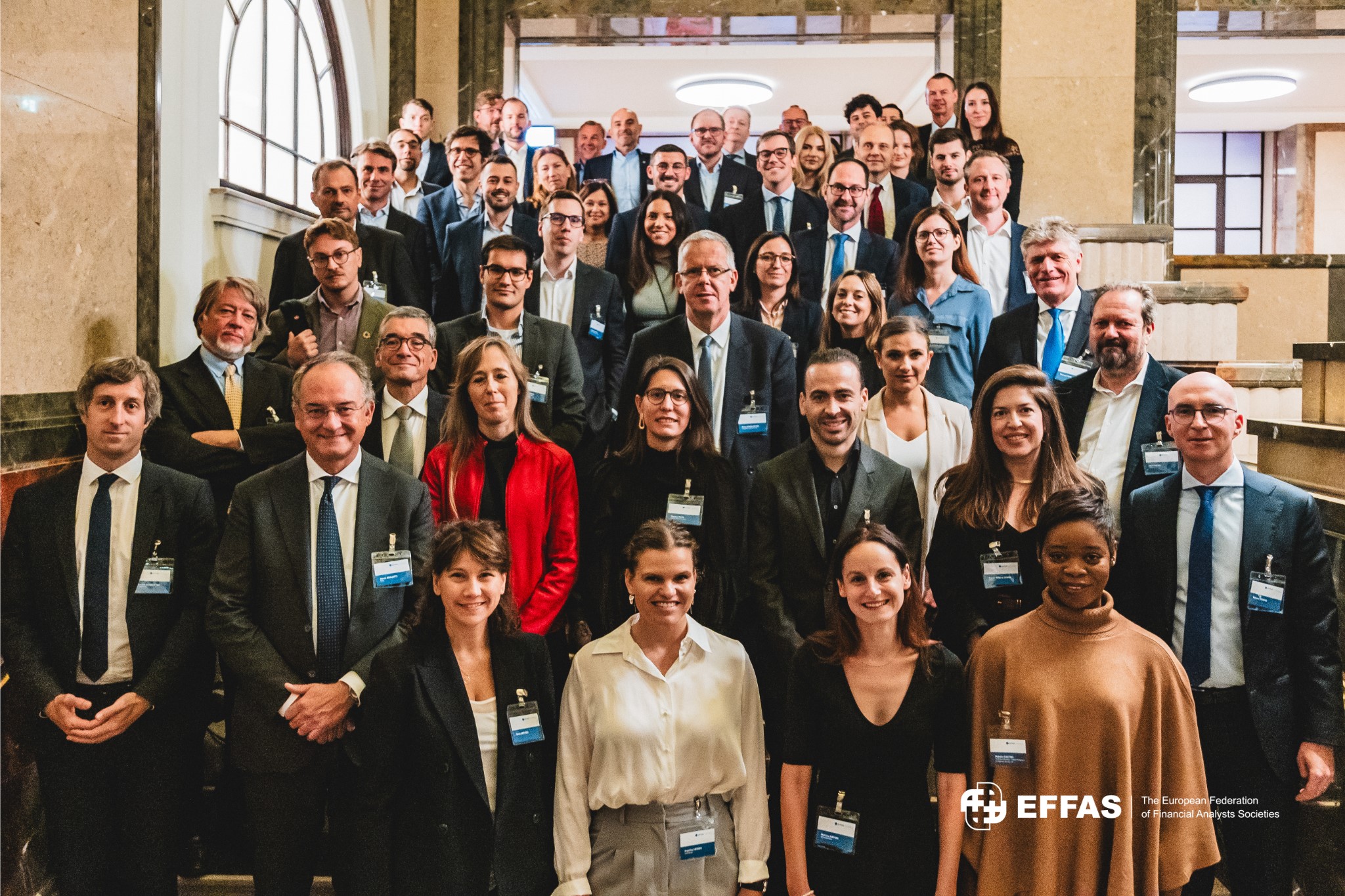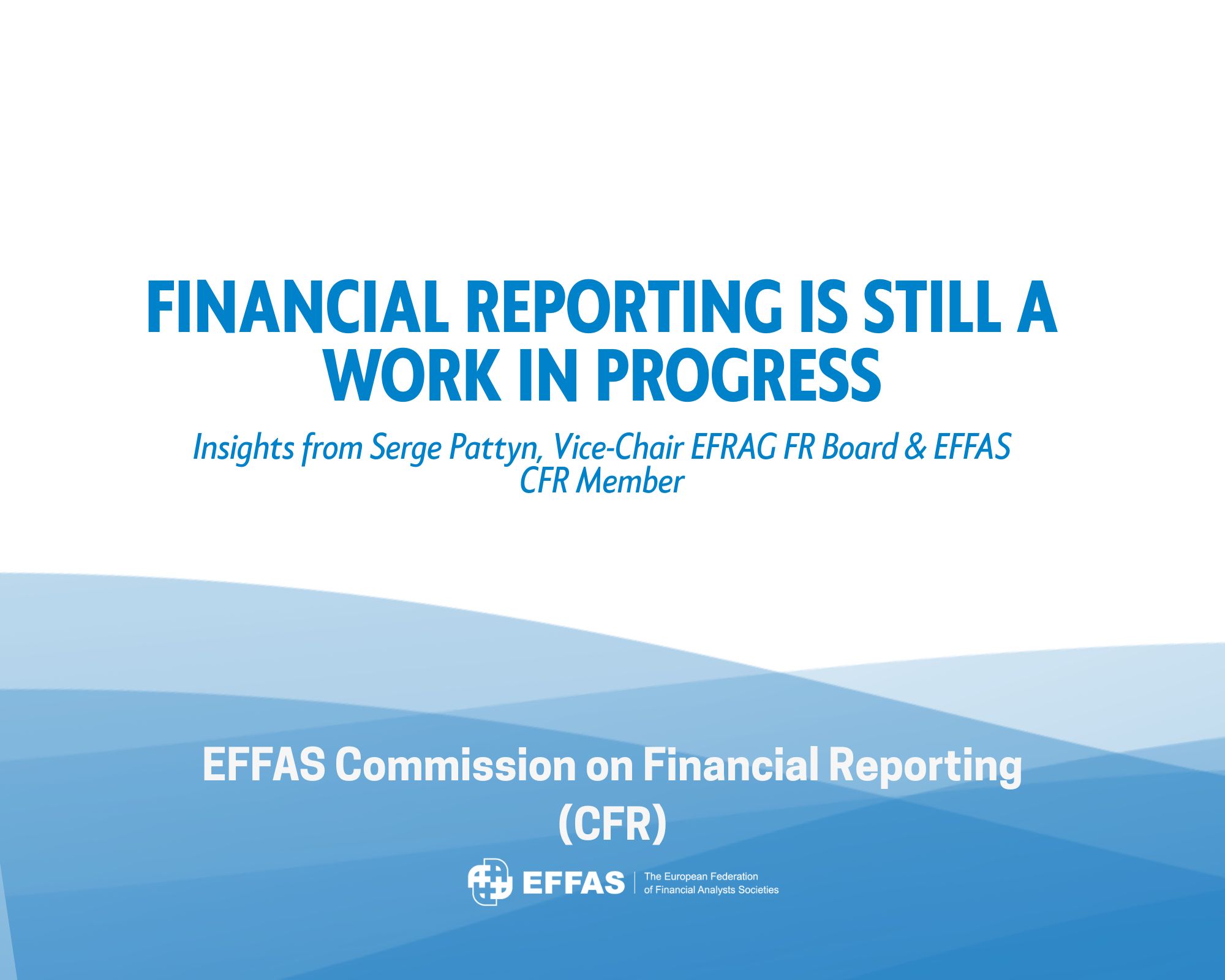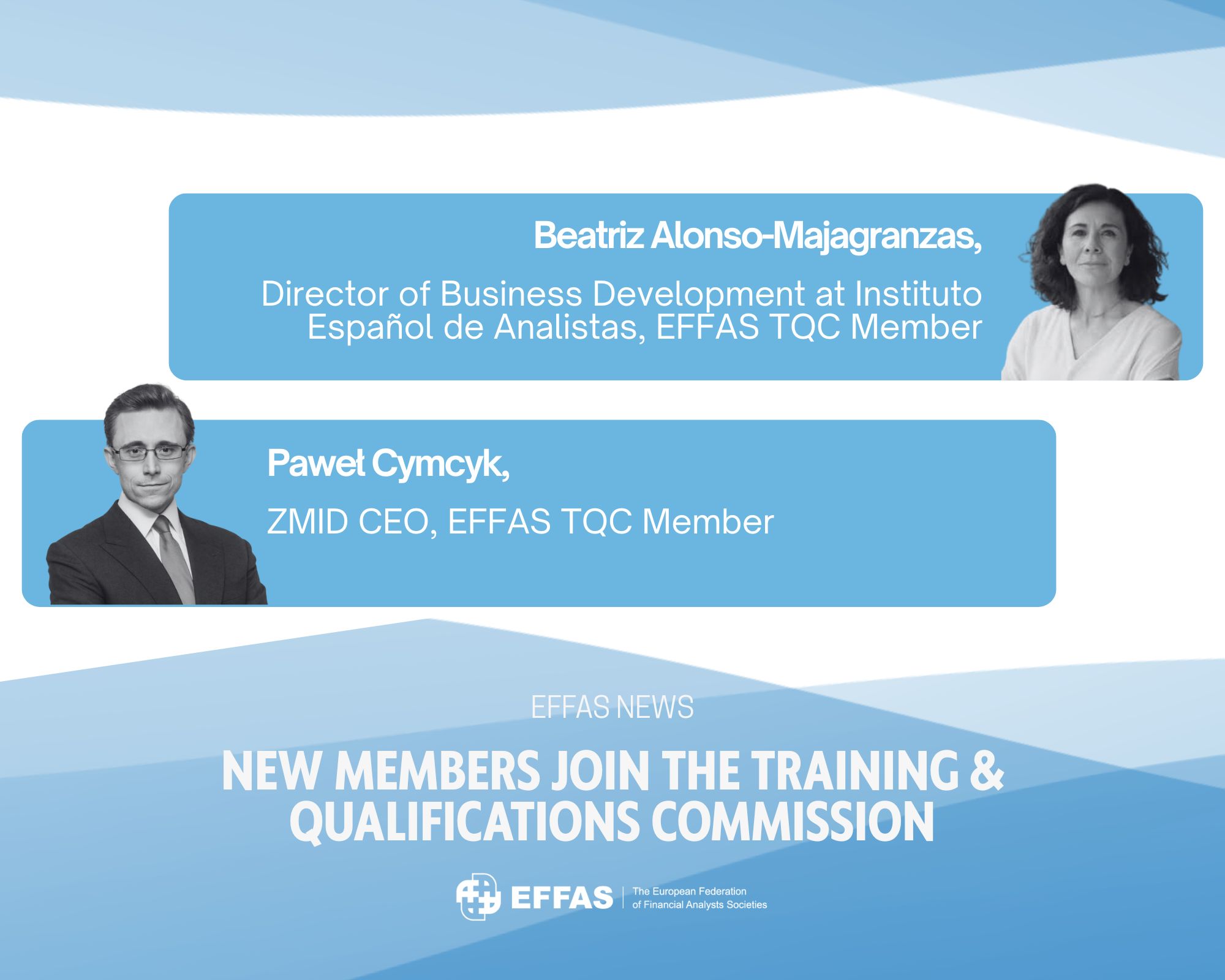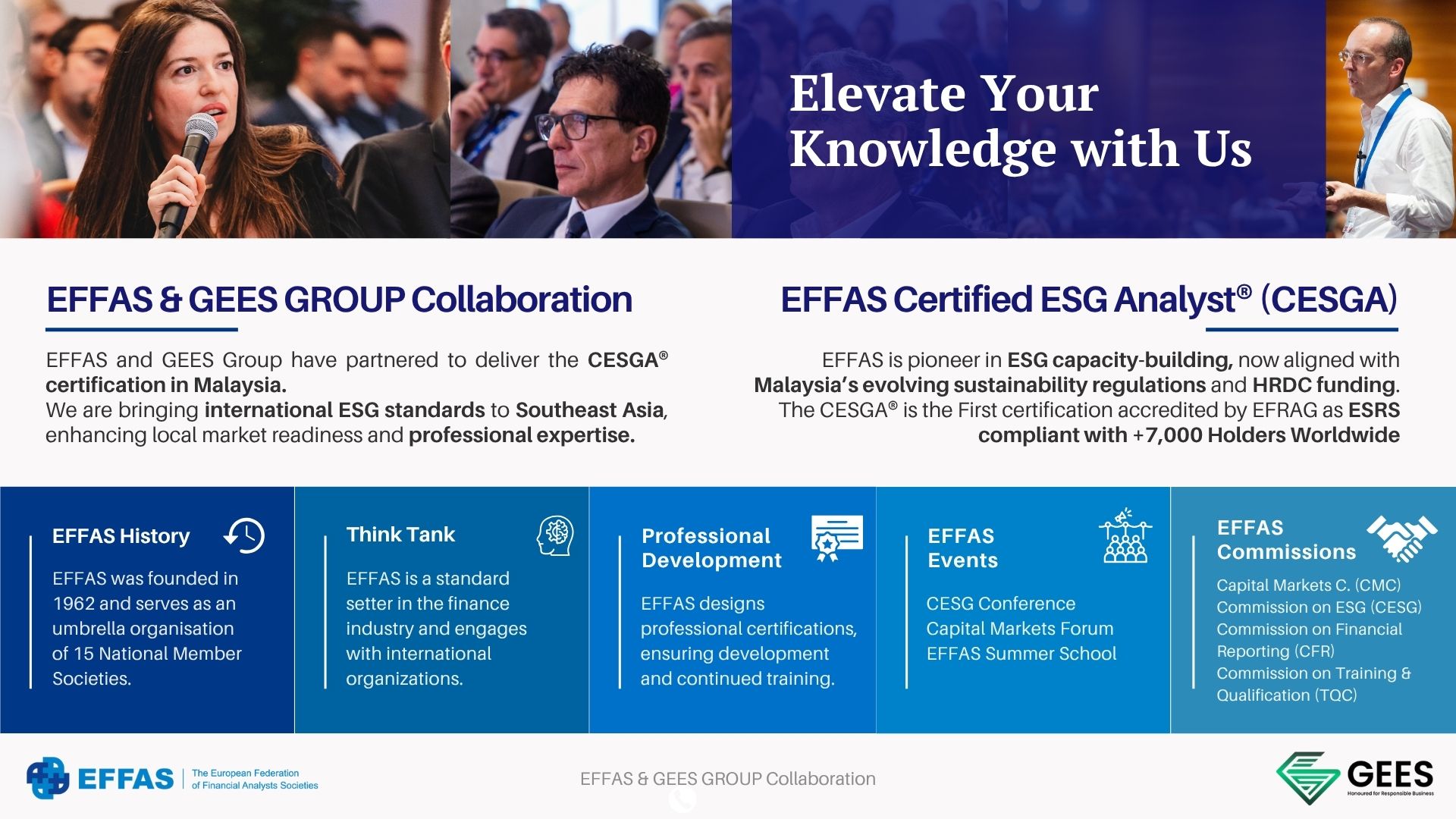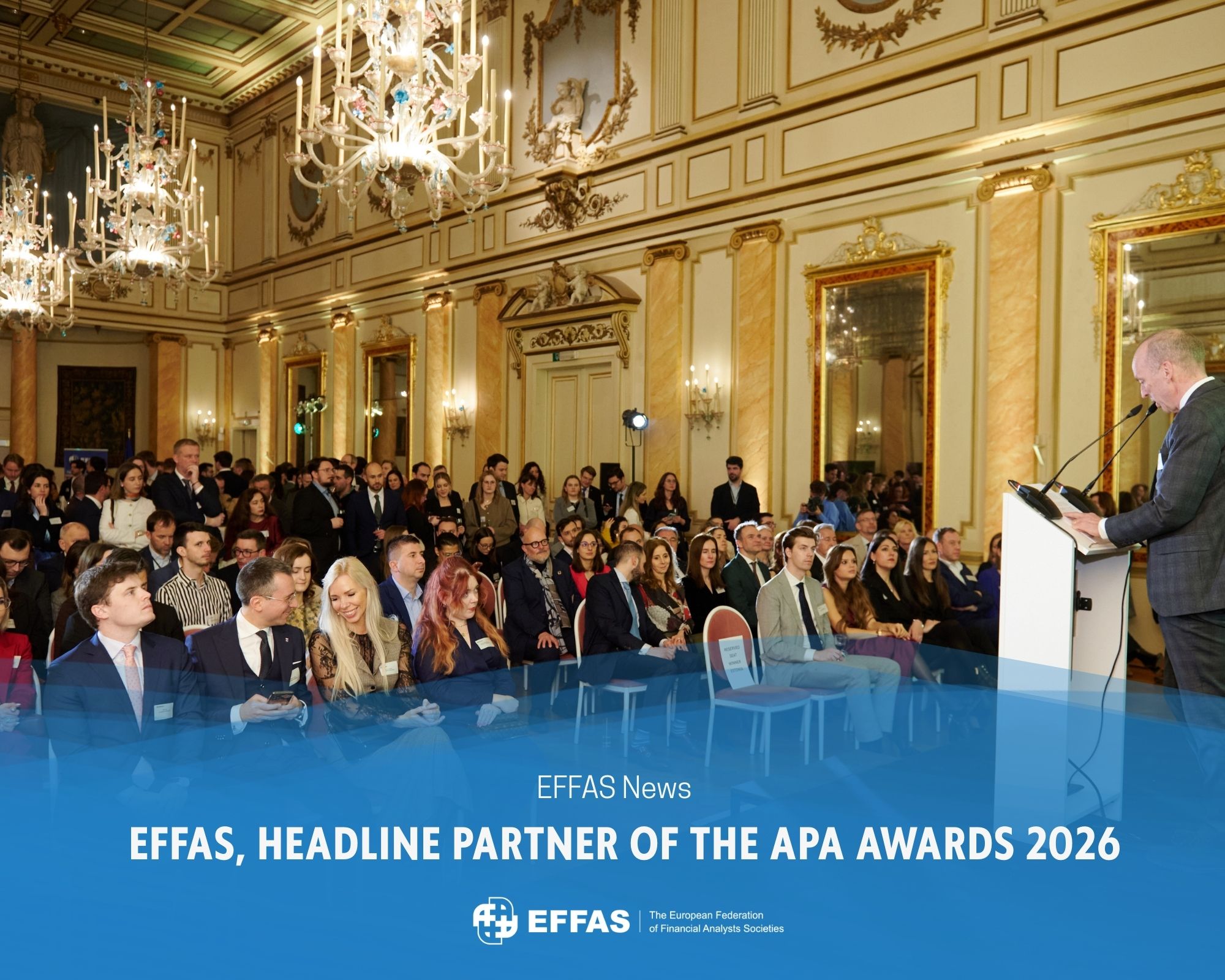


Vienna, 2 October 2024.
The European Federation of Financial Analysts Societies (EFFAS) and The Austrian Association for Financial Analysis and Asset Management (ÖVFA) held its annual CESG (Commission on Environment, Social and Governance) conference at the Austrian National Bank in Vienna.,Leading experts in finance, sustainability, and technology gathered to discuss the latest advancements and challenges in sustainable finance.
The conference covered a wide range of crucial topics, including the impact of Artificial Intelligence (AI) on portfolio management, the evolving role of ESG data in investment, SMEs, and the regulatory changes shaping the future of sustainable finance across Europe.
Alternative Assets and ESG
Having looked at different ways to implement liquid assets like equities and fixed income in the past, this time EFFAS kicked off the conference with the keynote “Alternative Assets and ESG: Where are the natural boundaries in implementation and methodology?’’, from Charlotte Jacobs, Senior Portfolio Manager, Private Equity Fund of Funds and Direct Investments in Decarbonization Solutions at Swisscanto.
AI in Finance: Opportunities and Risks.
As AI is the “name of the game” in Asset Management, this panel addressed the topic of ESG and Artificial Intelligence: Improvement and help for Portfolio Manager and Analysts or too early to use in practice? Daniela Carosio, Senior Partner at Sustainable Value Investors, emphasized AI’s potential in portfolio management and financial analysis, especially in handling complex ESG data. “AI can be very useful in portfolio management and financial analysis, particularly in dealing with a lot of complex ESG data,” she noted. However, she stressed the importance of human oversight to prevent algorithmic biases and misinformation, cautioning that ” human supervision in finance is key to avoid dystopic scenarios in financial markets”.
Lorenzo Saa, Chief Sustainability Officer at Clarity AI, further underscored the importance of tempering AI enthusiasm: “Let’s avoid the hype: AI is not the be-all and end-all of sustainable investments. It’s a powerful tool that, alongside subject matter experts—humans in the loop—can make life easier for investors.” Saa highlighted AI’s ability to streamline data collection and enhance both backward- and forward-looking analysis, helping investors focus on making informed decisions.
Mariana Pote, Head of ESG Research at RepRisk, stressed the role of human input in ensuring AI’s success. “Applying AI to ESG data collection efforts is an incredibly effective tool as it allows us to do what is humanly impossible. But it is important to remember that AI relies on human input. Quality human labelling is crucial for accuracy,” she remarked.

Navigating ESG Ratings & Data
A key area of focus is the harmonization between EFRAG and ISSB standards. Following the recent introduction of S1 and S2 by the ISSB and various consultations conducted by both organizations, participants discussed how the necessary alignment between these standards should and could be achieved. This conversation aimed to pave the way for a more cohesive framework in sustainability reporting.
Matthew Welch, Responsible Investment Specialist at Degroof Petercam AM, discussed the growing importance of regulation in ESG reporting, particularly the role of the CSRD in enhancing corporate accountability. “As the SFDR drives transparency in sustainable finance, the CSRD strengthens corporate accountability. Together, they are shaping the future of ESG integration,” Welch remarked, highlighting the regulatory frameworks’ transformative impact on sustainable investing.
Prof. Stefano Zambon, from the University of Ferrara, and member of the EFFAS Commission on ESG argued: ”EU sustainability reporting and regulation is in full swing. However, the claim that sustainability actions and related data can foster the company value has to be better specified by framing into the picture also the role of intangibles. The combination of sustainability actions and intangibles management can create certainly value for the corporation.”
Finally, Sonia Artuso, ESG integrator manager, member of the Commission on ESG, and moderator of the session refered to the Draghi report on European competitiveness, “ensuring that businesses are both productive and environmentally responsible, will help Europe build a resilient and forward-looking economy’’. She argues, “Big challenges, but even bigger opportunities to capture sustainability for long-term value.”
The next level in ESG
The discussion centred on Net Zero and its relationship to biodiversity and the impact on nature. Following a review of various climate strategies, particularly those focused on achieving net zero, participants explored how biodiversity could be integrated into a much broader perspective.
However, the conversation continued in this panel featuring the co-chairs of the CESG Commission, Frank Klein – Senior Coverage Specialist DWS, Board member DVFA and Jean-Philippe Desmartin – Head of Responsible Investment, Edmond de Rothschild AM; joined by Andreas Posavac, Managing Partner of Embera Partners, who argued:
“ESG has a bad reputation currently. It has become this isolated “label” for many corporates that is associated with compliance, risk and many times directly linked to disclosure and regulation only, that someone now has to take care of and deal with. The association is negative and often the opportunity side of the equation, the value-creation elements, especially in the context of financial markets, are not focused on. While people are increasingly aware of sustainability and ESG, the wider market is not yet capable of translating E, S and G into specific risks and opportunities for their own organization, let alone the quantification of the same in a capital markets context. This is the next challenge, and I believe one of our key roles, to qualify, upskill and enable the different stakeholders so that they can have an integrated perspective – with ESG as part of their core business strategies – and hence translate this better into capital markets”.
Furthermore, Jan Westring, Senior Portfolio Manager at the ‘’Pensionsmyndigheten’’, Swedish Pension Agency, stated that “By implementing the new procured platform for the Swedish premium pension system, the overall quality, controllable, price efficiency and sustainability of the funds will be improved, which is likely to lead to higher returns for the pension savers in Sweden.”
This panel was followed by Prof. Dr. Alexander Bassen from Hamburg University and the Academic Director of CESGA, who introduced the latest developments included in the CESGA 2024 update, more specifically, the climate module including the GHG protocol.

SMEs and ESG Reporting: Striking a Balance
A significant topic of discussion was the integration of small and medium enterprises (SMEs) in relation to ESG data and what a pragmatic and reasonable approach might entail. Recognizing that the involvement of SMEs was crucial for ensuring a successful transition for European corporates, participants deliberated on how this integration could be effectively implemented in practice.
Daniela Carosio pointed out that SMEs, while often perceived as less impactful from an ESG perspective, are still vital to the economy, especially in Europe. She stated that: “Since they represent the backbone of the economy of many EU countries, the EU CSRD [Corporate Sustainability Reporting Directive] implementation needs to take into account the costs of disclosure for listed SMEs in proportion to their resources as well as their smaller impact.”
Manuel Puerta da Costa, EFFAS APAF Chair, EFFAS Management Board member & treasurer added: ‘’Unintended consequences from well-intended policies and Regulation may harm the SME backbone of the European economy as they are overburdened by data collection that encompasses large and disproportionate human and financial costs. There may be more corporate fatalities than benefits from CSRD scope 3 implementation among these smaller companies.’’
The perspective from the moderator of this panel, Thorsten Müller – CEFA, CESGA, CIIA, Chair DVFA and Member of the EFFAS EMC, was clear, “If we really want to create a successful Capital Markets Union with increasing SME IPOs we need to understand that there is a trade-off between ESG regulation and the number of SME IPOs. Therefore, the prospective ESG regulation on LSME should be substantially decreased’’.
This panel was followed by a keynote on EFFAS/ DVFA impact investing from Dr. Gunnar Friede – CIIA, Head of ESG Multi Asset, DWS Investment, Member of EFFAS CESG.

What is my role as an analyst in this rapidly changing ESG Environment?
Henning Esskuchen – Head of CEE Equity Research, Erste Group, and Walter Hatak – Head of Responsible Investments, Erste Asset Management, examined the evolving role of analysts in a rapidly changing ESG environment. The discussion focused on whether these changes would permanently alter working conditions and analytical approaches and how these developments are expected to unfold in the future.
As Walter Hatak argued, “The role of ESG analysts is in the end the same as of traditional analysts, to analyse those aspects of the companies that are financially material. The added complexity for ESG analysts is to handle big amounts of data and understand how to combine different methodologies to get a useful investment signal in the end.”
Unpacking ESG Ratings: Addressing Challenges in Sustainable Investing
Industry experts discussed the evolution and challenges within sustainable investing. Lorenzo Saa, Chief Sustainability Officer at Clarity AI, drew a powerful analogy, stating, “ESG ratings were like great ready-made meals twenty years ago when few of us knew how to ‘cook’ a proper sustainable investment portfolio. But today, investors are more like skilled chefs. They don’t need pre-made ratings; they need transparent, high-quality ingredients and recipes—raw data and robust methodologies—so they can create their own custom solutions.” Saa emphasized that the future of sustainable investing lies not in standardized ratings but in empowering investors with the necessary tools and insights to build superior portfolios.
Alana Berry, Sustainable Markets Senior Analyst at Acciona and the panel’s moderator, reinforced this sentiment, highlighting the challenges inherent in the evolution of ESG ratings. “As we’ve discussed today, the evolution of ESG ratings is a challenging but vital journey. The key takeaway is that collaboration, transparency, and continuous improvement in data quality are essential for advancing this space,” Berry noted. She called for a united effort across industries and sectors, asserting that “by working together, we can ensure that ESG ratings become more reliable and impactful, helping drive sustainable investment decisions.”
Together, these insights underlined a transformative shift in the ESG landscape, pointing toward a future where informed investors can create bespoke solutions tailored to their sustainability goals.
Looking Forward: The Future of ESG Integration
Jean-Philippe Desmartin, Head of Responsible Investment at Edmond de Rothschild AM, who took part in writing the CESG Note 2 precisely on engagement, highlighted the importance of measuring effectiveness and impact, with a key message around engagement; quality is more important than quantity. He provided the closing remarks, calling for continued innovation and collaboration in the field.
As the global financial landscape continues to evolve, the EFFAS CESG conference served as a vital platform for thought leaders to share insights, address challenges, and set the direction for the future of sustainable finance.
For more information about this conference, visit EFFAS.
Next Conference: Capital Markets Forum 2025
The Capital Markets Forum will also be a hybrid conferenced, hosted in Zürich the 3 of April 2025.
If you would like to receive more information about this conference in the future, you can send us your email inb the button below:
About EFFAS
The European Federation of Financial Analysts Societies (EFFAS is a Not-for-profit organisation set up in 1962 with 14 national member associations in Europe, representing more than 16,000 Financial analysts, Asset managers, pension fund managers, corporate finance specialists, risk managers, treasurers among many other professional profiles from the investment profession. EFFAS is a certification body for finance with over 24,400 certificate holders worldwide.
For any queries, please refer to:
Alvaro Wagener Diez | Marketing & Communications Manager
EFFAS e.V.
Sophienstraße 44, DE 60487 Frankfurt am Main.
a.wagener@effas.com
Phone: +49 69 98959519 – Fax: +49 69 98957529
website: www.effas.com

